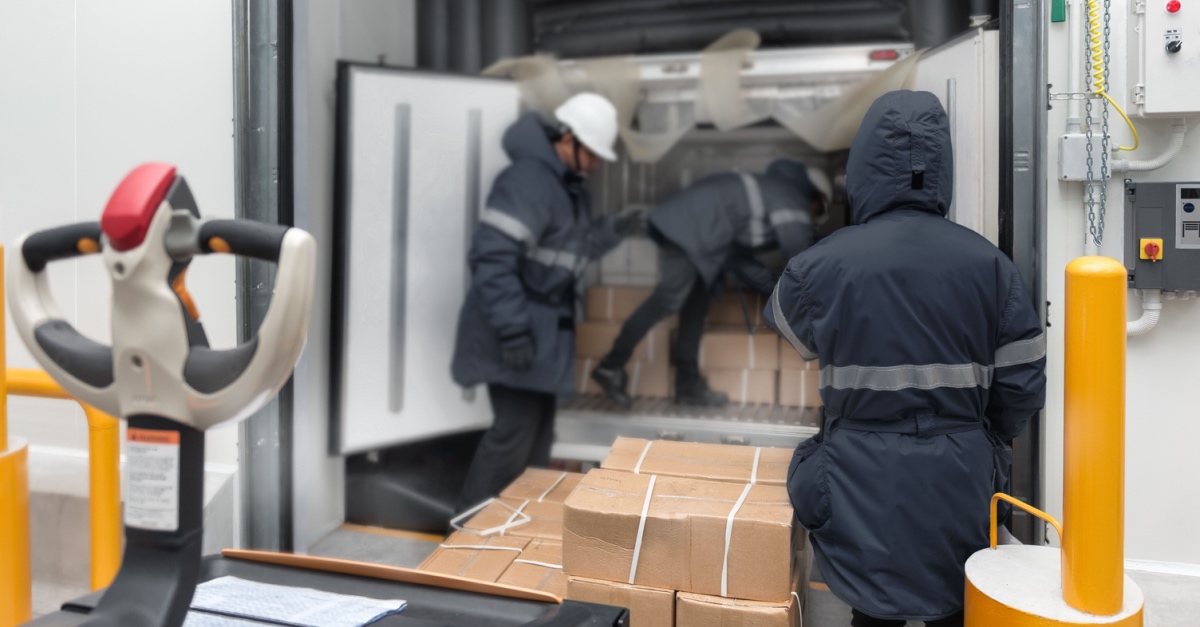

The shipping of perishable goods by truck or rail became a lot more reliable in 1935, when Frederick McKinley Jones invented a refrigeration device that attached to the roofs of trailers and railcars. It revolutionized temperature-controlled transport.
Today, a long list of food products and chemicals must be shipped at very specific temperatures. Shippers need a trusted transportation provider to ensure goods maintain the proper temperature throughout the shipping process and reach their final destination in perfect condition. VCPB Transportation is a leader in providing temperature-controlled solutions that meet these rigorous cold chain standards.
Cold chain standards encompass temperature control, regulatory compliance, and quality assurance.
In a recent article on LinkedIn, an industry expert said cold chain standards “are intended to protect public health …and guarantee that food preserves all of its nutrients and flavors.”
“The Food Safety Modernization Act of 2011 is the main source of rules pertaining to cold chain logistics,” it said. “The statute greatly increased the Food and Drug Administration’s control over how products are handled and transported from the manufacturer to the merchant to the final customer. The portion of the act that deals with the hygienic transportation of food intended for human or animal use contains many of the cold chain requirements that this act covers.”
The article said the requirements cover such critical elements of the cold chain as equipment cleanliness and functionality; transportation protocols; quality certifications; data monitoring; and recordkeeping.
Fortune Business Insights said the global cold chain logistics market was valued at $221.85 billion in 2020 and is forecast to grow to $647.47 billion in 2028.
“The growing need for temperature control to prevent food losses, the increasing penetration of connected devices and automation of refrigerated warehouses, and the increasing demand for perishable goods among consumers worldwide are expected to spur the industry growth over the forecast period,” Fortune Business Insights said.
Astute Analytica said, “The global cold chain logistics market is experiencing significant growth, propelled by the surging demand for temperature-sensitive products across sectors,” including food.
The perishability of goods is one of the biggest challenges in the shipping of fruits and vegetables, according to Shipper Business. This challenge “is compounded by the fact that produce shipping often involves long distances and transit times. It is critical, therefore, for businesses in this sector to devise strategies and solutions that can effectively combat product perishability, thereby minimizing losses and maximizing returns.”
Shipper Business said the use of temperature-controlled shipping containers is vital to improving the shelf life of fruits and vegetables and ensuring they reach their final destination in the best possible condition.
“Temperature-controlled shipping containers offer an efficient solution to the perishability problem, as they are specifically designed to maintain the temperature at optimum levels for the preservation of fresh produce,” it said.
Shipper Business noted that these shipping containers not only regulate temperature but also control humidity levels and gases, which also can impact the freshness and quality of produce.
“By leveraging these containers, businesses can also meet the increasingly strict food safety standards, as they minimize contamination risks during transit,” the article continued. “Therefore, businesses operating in the produce shipping industry should consider allocating a significant portion of their capital investment towards temperature-controlled shipping facilities. Adoption of this strategy can significantly contribute to the reduction of losses, increased profits, and improved customer satisfaction.”
The benefits of partnering with a logistics provider like VCPB Transportation that prioritizes cold chain standards include:
VCPB Transportation specializes in hauling expedited, perishable freight for the produce industry. It supplies all the major terminal markets and supermarket chains in the United States and also serves produce growers and food processors.
Headquartered in Secaucus, New Jersey, VCPB is a one-stop shop capable of performing and executing every step of the cold chain shipping process, from pier pickup to delivery to the customer. In addition to expedited shipments, VCPB is skilled at domestic intermodal, project cargo, LTL, full truckload, and more.
At VCPB, the customer is at the heart of every decision, with a focus on listening to customers, addressing their needs, and building lasting business relationships.
Start shipping with VCPB Transportation to revolutionize your cold chain logistics.